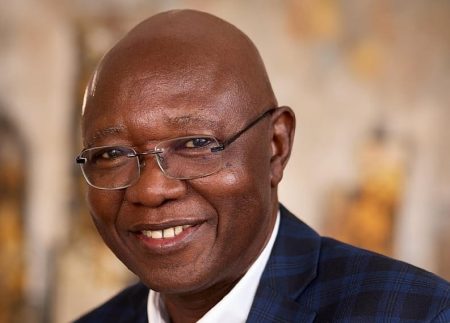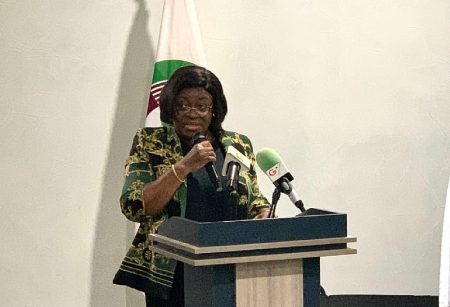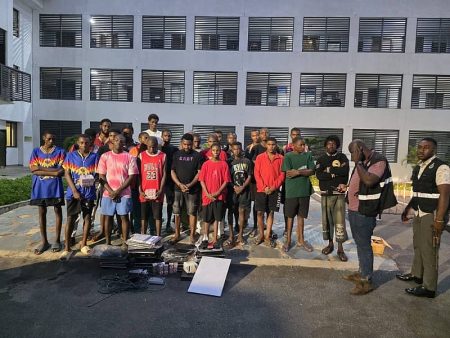The dismissal of Charlotte Osei, the first female Chairperson of Ghana’s Electoral Commission (EC), remains a contentious issue in Ghanaian politics. Dr. Hannah Louisa Bissiw, the National Women’s Organiser of the National Democratic Congress (NDC), has vehemently criticized the removal, characterizing it as an unjust act orchestrated by then-President Nana Addo Dankwa Akufo-Addo. Dr. Bissiw contends that the petitions leading to Osei’s dismissal lacked transparency, originating from anonymous individuals she deems “ghosts.” She argues that Osei was denied due process, deprived of the opportunity to address the allegations leveled against her, a significant breach of fairness in her view. This critique underscores the ongoing debate surrounding the circumstances of Osei’s removal and its implications for Ghana’s democratic processes.
The core of Dr. Bissiw’s argument rests on the perceived lack of transparency and due process in the proceedings against Charlotte Osei. She highlights the anonymity of the petitioners, questioning the validity of complaints emanating from unidentified sources. This anonymity, in her view, casts a shadow of doubt over the legitimacy of the entire process. Furthermore, Dr. Bissiw emphasizes the denial of a fair hearing for Osei, asserting that she was not afforded the opportunity to respond to the accusations before her dismissal. This perceived denial of a fundamental right to defend oneself reinforces the perception of injustice surrounding the removal. The emphasis on Osei’s position as the first female Chairperson of the EC adds another layer to the narrative, suggesting a potential gendered dimension to the events.
The allegations against Charlotte Osei, as presented by the anonymous petitioners, revolved around claims of corruption and misconduct. These included accusations of unilateral decision-making, financial irregularities, and questionable procurement practices. One specific instance cited was the cancellation of a contract with Superlock Technologies Limited (STL), a decision that raised concerns. Another involved the authorization of a $76,000 payment to IT firm Dream Oval, a transaction that also drew scrutiny. These accusations, while originating from unnamed sources, formed the basis of the investigation that ultimately led to Osei’s dismissal. The nature of these allegations, coupled with the anonymity of the accusers, contributed to the controversy surrounding the entire affair.
Adding complexity to the situation were internal conflicts within the EC itself. Tensions between Charlotte Osei and her deputies, Amadu Sulley and Georgina Opoku Amankwaa, resulted in counter-petitions being filed against them. This internal strife further fueled the controversy, creating a climate of distrust and accusations within the institution. The intertwined nature of these internal disputes with the allegations against Osei made it difficult to disentangle the various claims and counterclaims. The subsequent investigation, which lasted for a year, culminated in the recommendation for the removal of all three commissioners, a decision that solidified the perception of a deeply flawed and contentious process.
The removal of Charlotte Osei sparked a broader debate about the independence and integrity of Ghana’s electoral institutions. Critics argued that the process was politically motivated, designed to undermine the independence of the EC. The anonymity of the petitioners and the perceived lack of due process fueled these concerns, raising questions about the fairness and transparency of the proceedings. The implications of this controversy extended beyond the individuals involved, impacting public trust in the EC and its ability to conduct free and fair elections. The incident highlighted the importance of robust mechanisms to protect the integrity of electoral bodies and safeguard against undue political influence.
The case of Charlotte Osei’s dismissal serves as a cautionary tale about the fragility of democratic institutions and the importance of upholding due process and transparency. The controversy surrounding her removal underscores the need for clear and impartial procedures for handling complaints against public officials, particularly those in sensitive positions like the head of an electoral commission. The emphasis on Osei’s gender adds another layer to the discussion, raising questions about the potential for gender bias in such processes. The long-term impact of this incident on Ghana’s democratic landscape remains to be seen, but it undoubtedly serves as a reminder of the constant vigilance required to protect the integrity of democratic institutions and ensure public trust in the electoral process.














